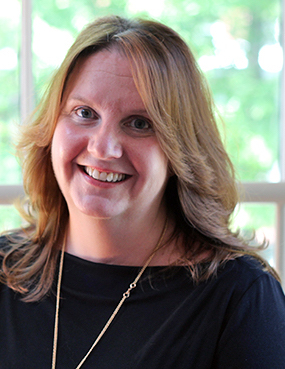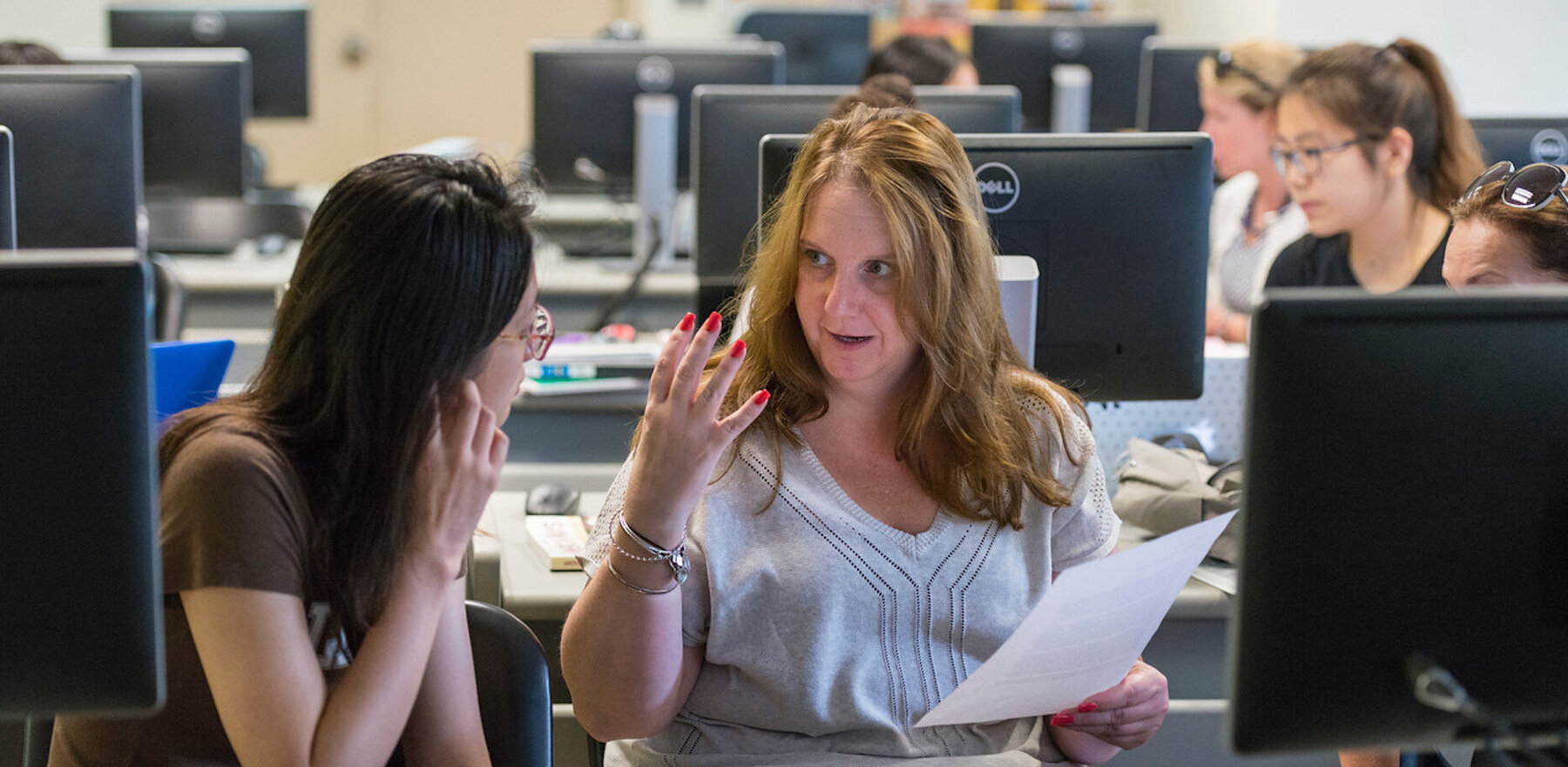Language Specialist Teresa Cusumano shares how Lehigh’s International Center for Academic and Professional English (ICAPE) empowers multilingual students, fosters global connections, and helps the campus community see language as an asset.
The Office of International Affairs (OIA) is home to a diverse team whose work advances Lehigh University’s global mission in countless ways, from supporting international students and scholars to building worldwide partnerships and programs. In this ongoing Q&A series, we introduce the people behind that work, highlighting staff members across all of OIA's departments and the many ways they help prepare Lehigh students, faculty, and staff to engage meaningfully with the world.
This week, we'll be speaking to Teresa Cusumano, Language Specialist at the International Center for Academic and Professional English (ICAPE).

Tell us a little bit about your office within OIA, and what it is that you specifically do?
ICAPE’s as well as my primary responsibility is the classes we offer. We work with undergraduate and graduate populations through our writing classes. Writing 3 is taught by instructors with TESOL (Teaching English to Speakers of Other Languages) certification, and it fulfills the same credit as Writing 1. About half of the classes now include domestic students who want an international perspective.
In addition to credit courses, we have a non-credit Step Up Program for conditionally admitted students and free classes for spouses of Lehigh students. Many international graduate students come with their families, so we help spouses learn English for daily life like food shopping, doctor's appointments, navigating schools for their children, and parent-teacher conferences.
How does your office contribute to Lehigh's mission of preparing students to engage with the world?
The COIL (Collaborative Online International Learning) program is a major initiative. For the past five years, our Writing 5 class in the spring has been collaborative. We Zoom in for eight weeks with students and a teacher from Ecuador. The curriculum is planned together with the USFQ teacher, combining two sections. Students work together on writing and research for eight weeks, then during spring break, they travel to Ecuador to see what they've been studying. This year, the students are coming here in February.
The COIL class starts with self-reflection using the active citizen continuum from breakaway.org. We help students, especially international students, understand their place in getting involved. Many come in with fear about whether they have a right to get involved or express opinions since they're not American. We help them build confidence through volunteerism on campus and in the community, working with offices like Zoellner and Passport to Success. The travel component helps students navigate study abroad opportunities and build skills for potentially doing a semester abroad later.
What are you excited about right now — new programs, opportunities, or challenges?
The students in Ecuador are coming here this year! With everything going on politically, I wasn't hopeful they would be interested in coming, but they are. We're planning for February. We're working with the Community Service Office, CITL (Center for innovation in Teaching and Learning), and Passport to Success, and all of these programs are collaborating to bring the students here and create this service learning program.
I'm also excited about our 10th Anniversary of the International Voices magazine (now rebranded as just Voices). We'll be publishing our 10th edition at the International Bazaar. This year we have a huge, really active e-board, and we're planning events including helping with Friendsgiving, our thankful tree tradition, and centerpieces for the dinner.
Do you have a favorite story or example that shows the impact of your work?
The students I've worked with in the COIL program over the past couple of years have gone on to amazing things. One of my COIL students is now going to medical school and called me asking for references. Another student is working for the Democratic National Committee. These undergraduate freshmen start just dipping their toe in the water of intercultural communication and intercultural competence, and seeing them take that and continue with it is what makes me really proud. One student just came back from teaching in Japan for the past year and is coming back up to Lehigh Valley and revisit everything she did while she was at Lehigh. I love that they have this connection and attachment to Lehigh that's ongoing.
What's one thing you wish more students/faculty knew about your office?
Mark Ouellette, Director of ICAPE, really moved the center away from ESL. ESL is a term that is not really used anymore and is kind of seen as pejorative. He worked to get out the idea of being multilingual rather than ESL, where you see lack of English skills as a deficit. We look at being able to speak more than one language as an asset. I hope this is starting to be recognized on campus. That this department is here to support all international students coming in, but we're also here to showcase the talents and culture they bring to campus. I hope the stigma around ESL is dissipating and that ICAPE has worked hard to get appreciation for multilingualism and multiculturalism.
